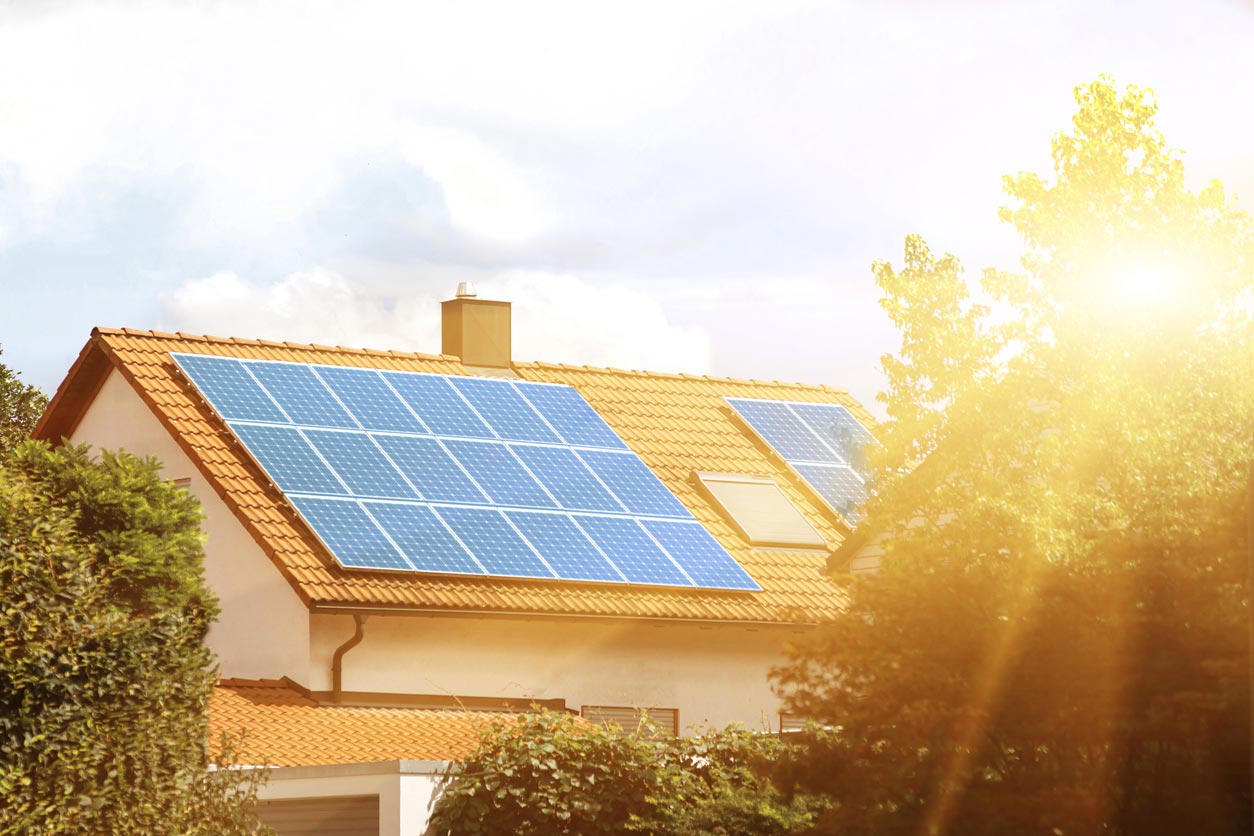Solar panels have become a popular choice for homeowners looking to reduce their carbon footprint and save money on their energy bills. With the cost of solar panels continuing to drop and government incentives available, there has never been a better time to switch to solar energy.
However, making the switch to solar energy can seem daunting, with many questions about the process and costs involved. In this comprehensive guide, we’ll break down everything you need to know about installing solar panels on your roof, from the initial costs to the long-term benefits.
iStock.com/Lari Bat
The Cost of Installing Solar Panels
One of the main concerns for homeowners when considering solar panels is the cost. The initial investment for solar panels can be substantial, with prices ranging from $10,000 to $30,000 or more, depending on the size of the system and the specific panels you choose.
However, it’s important to consider the long-term benefits of solar panels. By generating your own electricity, you can reduce or even eliminate your dependence on the electrical grid, potentially saving you hundreds or even thousands of dollars each year on your energy bills.
In addition, many governments offer incentives for homeowners who switch to solar energy, including tax credits, rebates, and subsidies. These incentives can significantly reduce the cost of installing solar panels and make them more affordable for the average homeowner.
Choosing the Right Solar Panels for Your Home
With so many different solar panels on the market, it can be difficult to know which ones are right for your home. When choosing solar panels, there are several key factors to consider, including efficiency, cost, warranty, and compatibility with your home’s electrical system.
Efficiency refers to the amount of energy that a solar panel can convert from the sun into usable electricity. More efficient panels will generate more electricity, but they also tend to be more expensive.
The cost of the panels is another important consideration, as this will be a significant portion of the overall cost of your solar panel system. While more expensive panels may generate more electricity, it’s important to find a balance between cost and efficiency that fits your budget.
The warranty offered by the manufacturer is also important. Look for a warranty that covers the panels for at least 25 years, as this will give you peace of mind that you’re making a solid investment.
Finally, it’s important to make sure the solar panels you choose are compatible with your home’s electrical system. A professional solar installer will be able to advise you on the best panels for your home and ensure that they are properly installed.
Hiring a Professional Solar Installer
While it is possible to install solar panels yourself, it is generally recommended to hire a professional solar installer. These professionals have the experience and expertise to ensure that your solar panels are properly installed and that your home’s electrical system is fully integrated with the panels.
A professional solar installer will also be able to advise you on the best solar panels for your home, based on your specific needs and budget. They will handle the entire installation process, from obtaining the necessary permits to connecting your panels to the electrical grid.
Hiring a professional solar installer also ensures that your warranty remains valid. Many warranties require that the panels be installed by a professional, and if you install them yourself, you may void your warranty.
The Benefits of Installing Solar Panels on Your Roof
Installing solar panels on your roof offers numerous benefits, including reducing your carbon footprint, saving money on your energy bills, and increasing the value of your home.
By generating your own electricity with solar panels, you can significantly reduce your dependence on traditional energy sources, which are often powered by fossil fuels. This reduction in carbon emissions helps to protect the environment and reduce your overall carbon footprint.
In addition, by generating your own electricity, you can potentially save hundreds or even thousands of dollars each year on your energy bills. The savings will depend on the size of your solar panel system and the amount of electricity you use, but over time, the savings can add up.
Finally, installing solar panels on your roof can also increase the value of your home. Many potential homebuyers are attracted to homes that are energy-efficient and have low energy costs, and solar panels can help to make your home more attractive to these buyers.
In conclusion, installing solar panels on your roof can be a great investment for your home and for the environment. With the right information, you can make informed decisions about the best solar panels for your home, the costs involved, and the long-term benefits. So why wait? Start exploring your options today and take the first step towards powering your home with clean, renewable energy from the sun!

